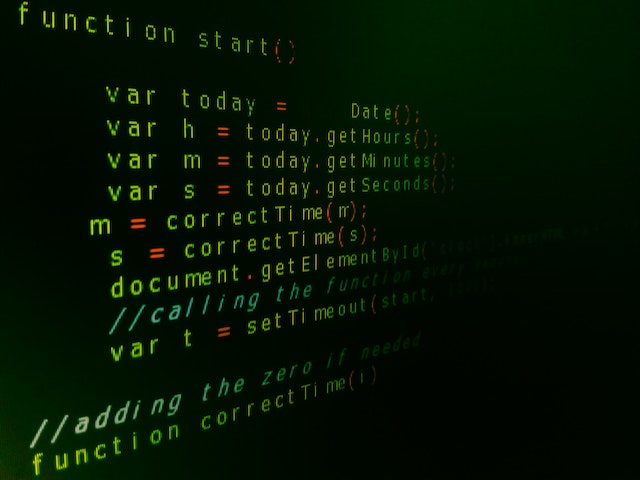The internet age has bestowed numerous conveniences upon society, from instant communication to the vast availability of information. However, with these benefits comes the risk of cyber threats. Understanding cybersecurity becomes paramount for individuals and businesses as the digital landscape expands. Here are crucial aspects of cybersecurity that everyone should be aware of.

1. The Ever-Evolving Nature of Threats
The dangers posed by the internet are not static; rather, they are always changing in response to new technology developments and preventative safeguards. Cybercriminals constantly adapt their strategies and methods to the ever-shifting landscape of available technology. A method of computer hacking that could have been considered state-of-the-art only a year ago might now be very simple to defend. Because of the dynamic nature of the threat environment, it is necessary to take a proactive and flexible approach to cybersecurity. Businesses and people are responsible for maintaining vigilance, ensuring that their defenses are routinely updated to combat newly discovered threats, and investing in ongoing learning and adaptation to stay one step ahead of prospective cyber attackers.
2. Human Error is a Significant Weakness
While envisioning cybersecurity threats, one might imagine shadowy figures or sophisticated hackers deploying intricate malware and tools. However, the reality is often much simpler; many breaches arise from human errors. This could result from a misplaced device containing sensitive information, a weak or reused password, or an unintentional click on a malicious phishing link. Such oversights underscore the importance of comprehensive cybersecurity training for all users. By emphasizing best practices, fostering a culture of security awareness, and regularly updating training modules to address current threats, organizations can significantly mitigate the risks posed by human error.
3. Multi-Factor Authentication (MFA) is Crucial
Password protection, while foundational, is no longer deemed sufficient in the face of evolving cyber threats. Multi-factor authentication (MFA) has emerged as a pivotal security system, requiring users to provide multiple forms of identification before granting access. This system typically combines something you know, such as a password, something you have, like a smartphone or a token, and something intrinsic to who you are, such as fingerprint or facial recognition. By integrating these varied authentication methods, MFA significantly enhances account security. This multi-layered approach ensures that even if a password is compromised, unauthorized access is still thwarted by the additional verification layers.
4. Not All Cybersecurity Solutions Fit All Needs
There is no one-size-fits-all approach to cybersecurity since the requirements of different businesses for digital protection are quite diverse. An individual, for example, can need just the most basic forms of protection for their own devices. Still, a huge organization that handles massive quantities of sensitive client data can require a multi-layered and comprehensive defensive strategy. The specifics of the data at issue, how sensitive it is, and the consequences that might result from a security breach are all factors that play a role in determining the necessary security measures.
It is essential to realize that off-the-shelf solutions cannot address your organization’s weaknesses and dangers. Therefore, it is necessary to implement individualized cybersecurity solutions that can be adapted to an organization’s unique requirements and obstacles to provide the highest level of protection possible against constantly developing cyber threats.
5. Reliable Services of Cybersecurity
Maintaining robust defenses against cyber threats cannot be overstated in today’s digital age. While numerous providers are in the market, opting for reliable services of cybersecurity that offer comprehensive protection tailored to your specific needs is crucial. 7tech’s reliable cybersecurity services have earned a reputation for their holistic approach, addressing current threats and anticipating future challenges. Businesses and individuals can safeguard their sensitive data and digital operations more effectively by partnering with trusted experts. After all, in cybersecurity, the right expertise can be the difference between secure operations and potential digital calamity.
6. Regular Backups are a Lifesaver
Despite the best protective measures, breaches can still occur, highlighting the importance of preparedness for post-breach scenarios. In such instances, having recent, accessible backups of essential data can mean the difference between rapid recovery and prolonged disruption. Take ransomware attacks, for instance, which maliciously lock users out of their data and demand hefty ransoms for its release. If victims regularly back up their data, they can restore their systems, negating the attacker’s leverage. Opting for cloud-based backup solutions, which incorporate strong encryption protocols, not only ensures the security of the stored data but also facilitates ease of data restoration, making business continuity more manageable.
Conclusion
Cybersecurity is an integral aspect of our digital world, acting as the guardian of trust, privacy, and uninterrupted digital services. Awareness of its nuances ensures personal data protection and fortifies businesses against potentially crippling breaches. As technology advances and the world grows more interconnected, cybersecurity principles will remain central, guiding safe and secure interactions in the digital expanse.
